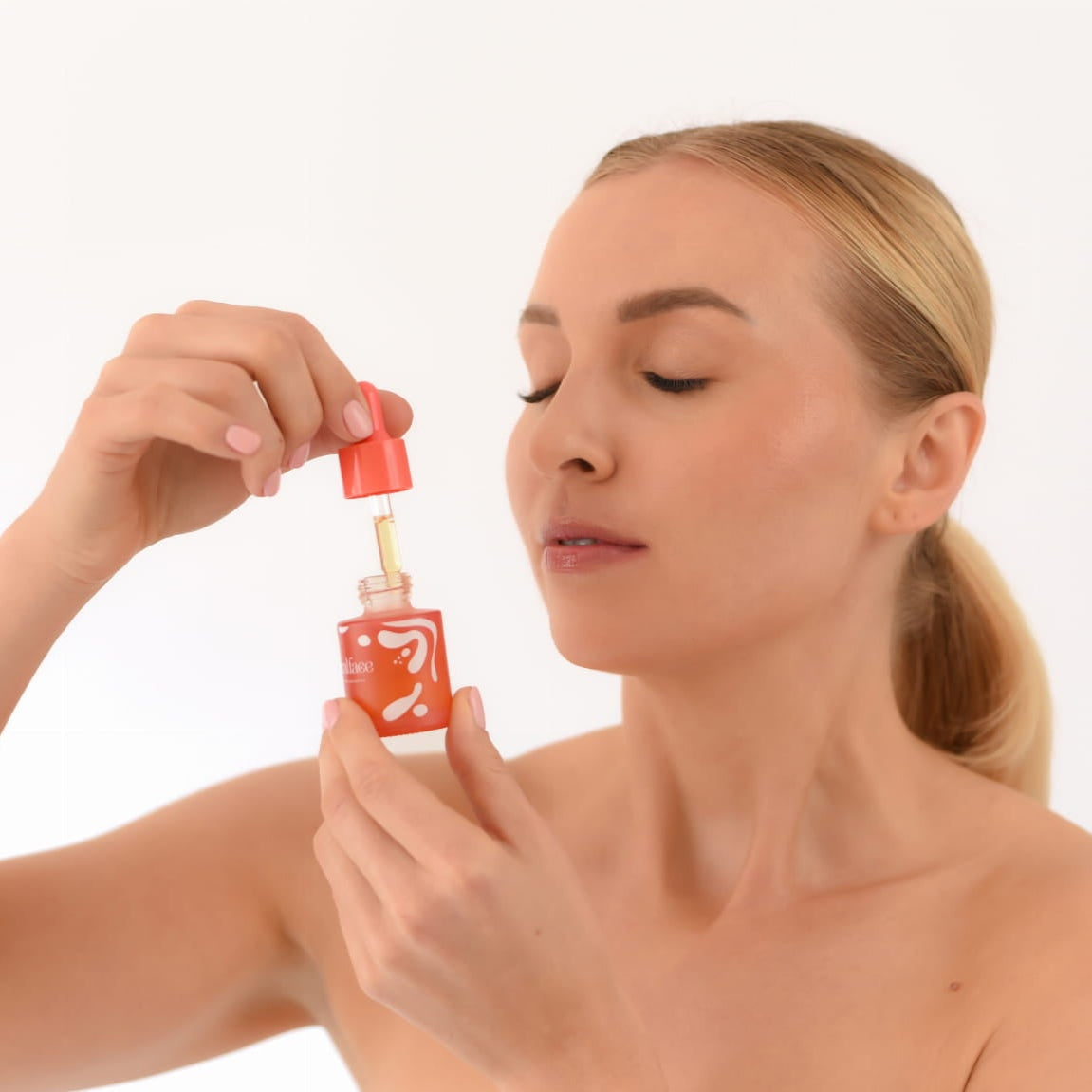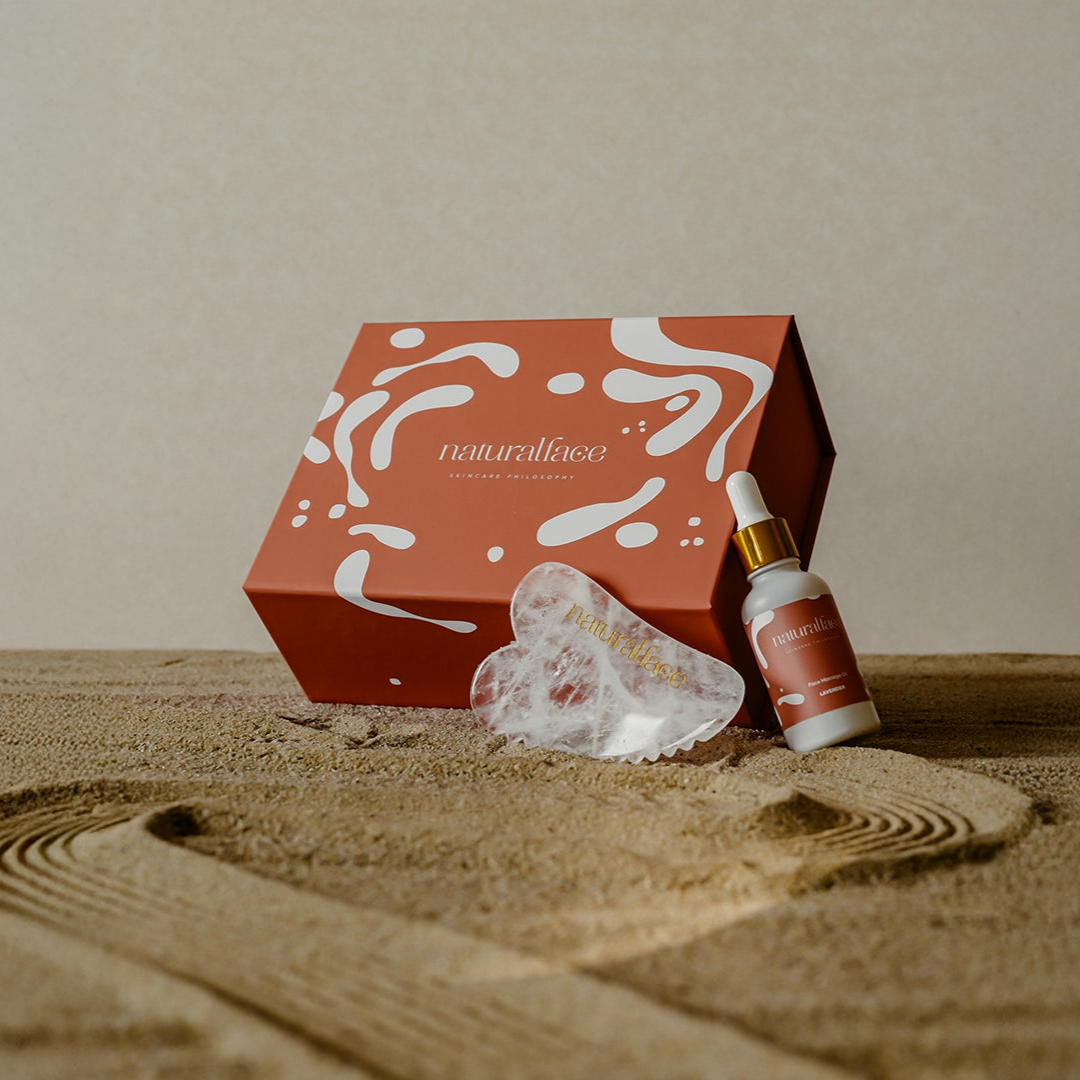The skin isn't just a surface. It's a sensory organ that responds to the body's emotions and records them in tension, rhythm, and touch. Every stress, every breath, every gesture leaves a mark on it. Learn how the body speaks through the skin and how to restore its peace.
We've all experienced that moment - you clench your teeth, raise your shoulders, and frown without even thinking about it. And then you notice your face getting heavier, the lines deepening, and the tension in your jaw turning into a migraine or tooth discomfort.
The body remembers every gesture, and the skin, silently and loyally, responds. Not just to touch or cosmetics, but to what's happening deep within the body. Because our skin isn't just another layer; it's a network of nerve endings, blood vessels, and memory cells that record your emotions and signals from the nervous system daily. It reacts before you can even name anything.
# The body that remembers stress
When you're stressed, your body goes into defense mode. Facial muscles tense and stiffen, blood vessels constrict, and microcirculation slows. For the skin, this means one thing: less oxygen, slower circulation, and less radiance. This is why, after a hard day, your face appears more "tired," gray, and less elastic. It's not a matter of age or care; it's the language of the nervous system. The skin, like the heart or stomach, responds to emotions because it's an extension of them. The nervous system and skin develop from the same embryonic layer: the ectoderm. Biologically, they are one body, one information network. Therefore, every emotion, stress, anxiety, and tension, is reflected in the skin: in its rhythm, softness, and warmth.
# Physiology of Calmness
Just as stress closes, so peace opens. When the body regains balance, vessels dilate again, blood flows more freely, and the skin becomes warmer and more elastic. Not because "the cream worked," but because the nervous system received a safety signal. This is the moment when the body shifts from fight mode to regeneration mode. The physiology of peace begins—a state in which the skin "repairs itself" because it has the resources to do so.
# Touch as body language
At Natural Face, we say that touch is a conversation between the body and the nervous system. It's not for "lifting," but for communication. Every conscious gesture with oil, every stroke of your hand across your cheek, is a micro-signal: "I'm safe. You can let go." When you massage your face not to "improve something," but to feel it, the body responds completely differently. Muscles "soften," breathing calms, and the skin begins to absorb not only the oil but your own peace.
This isn't a procedure. It's the biology of presence.
# Skin as a mirror of the relationship with the body
As we age, we learn to care for our skin from the outside: serums, creams, SPF, masks, exfoliators. However, we rarely learn to listen to it from the inside. And yet, that's where every change begins: in emotions, in tensions, in the way the body responds to touch. Skin that feels safe looks different. Not because it's "rested," but because it doesn't have to defend itself. Peace is visible. Not in the lines, but in the rhythm, softness, and luminosity of the skin.
# Natural Face - practice of peace
The Natural Face philosophy stems from this simple observation: beauty isn't the result of a product, but of a relationship with your body. When you give yourself attention, touch, and ritual, your nervous system registers it as safety. And safety triggers regeneration.
That's why we say the skin has memory. But it also has emotions. Because the body remembers every touch and every moment of peace you give yourself.
# Do you want to start practicing peace in your daily care?
Check out Self Love oil, designed to work with facial tension and provide a gentle touch that doesn't improve, but restores the skin's sense of security.




